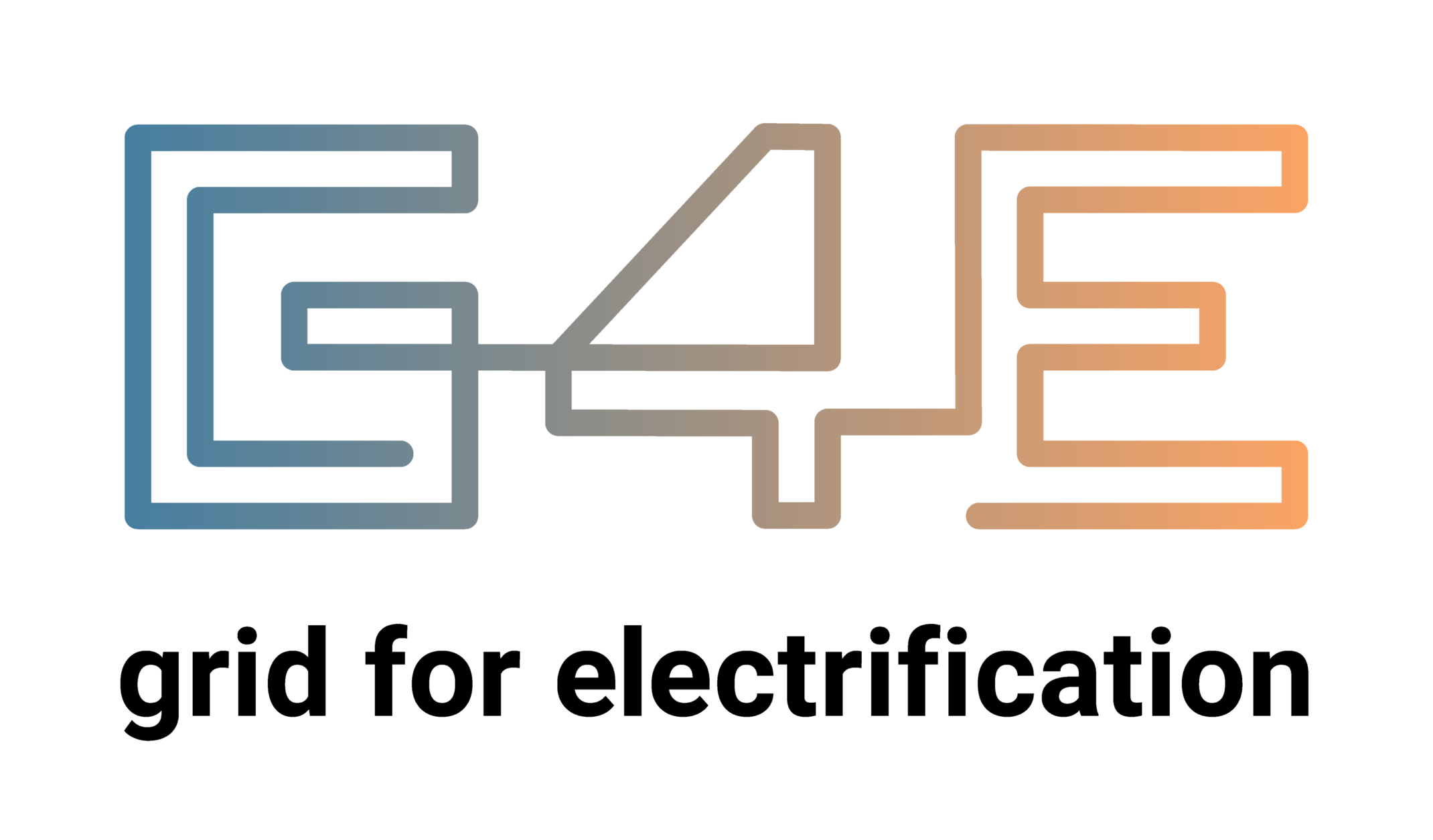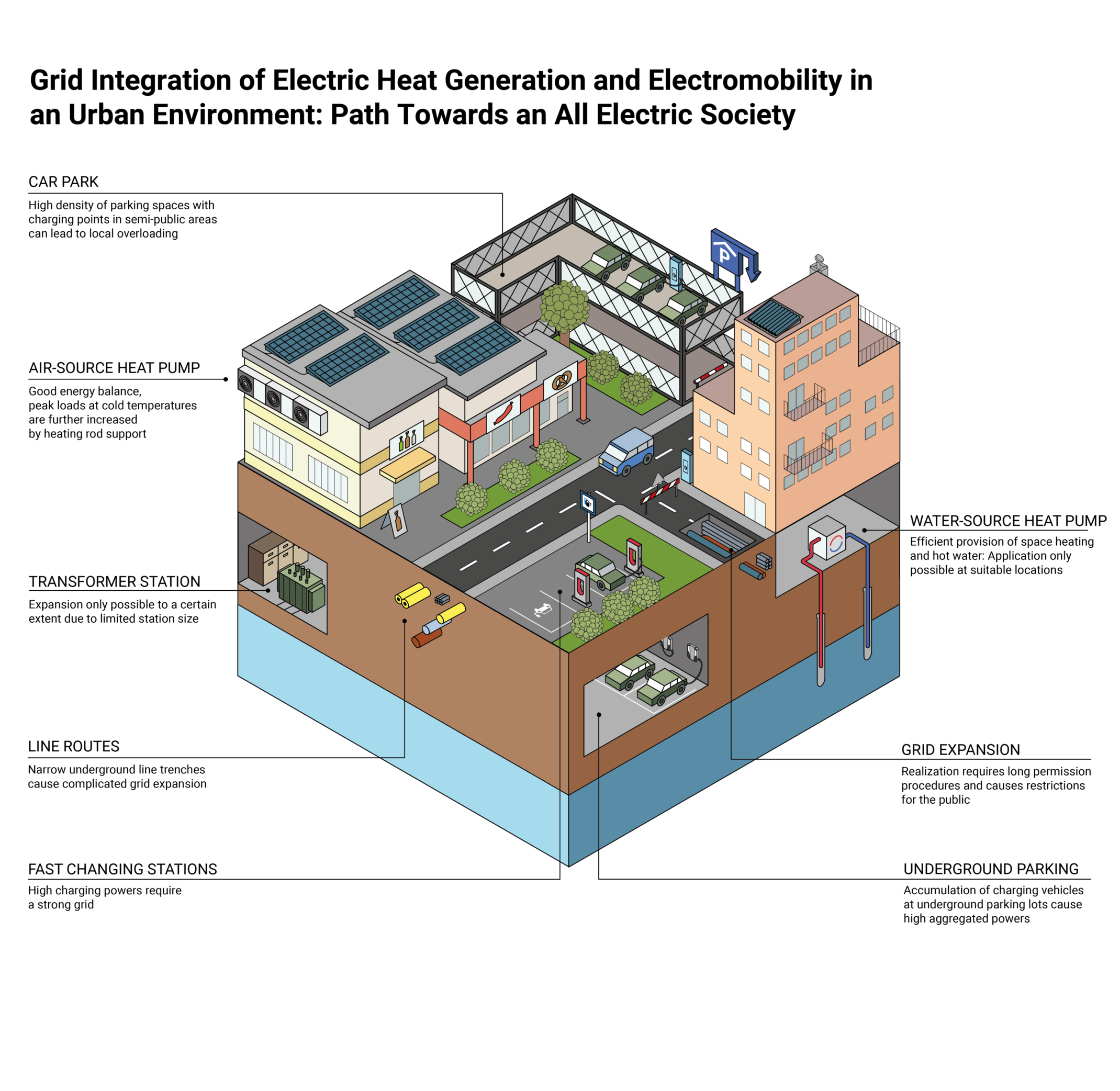
Impact of the Transport and Heat Transition on Urban Distribution Grids

Project description
Advancing anthropogenic climate change requires a rapid transition away from fossil fuels. The mobility and heat sectors, in particular, are facing significant transformation in the near future. With the market ramp-up of electric vehicles, the need for charging infrastructure is increasing. In addition to the expansion of heating networks, heat pumps will play an increasingly important role in the future provision of environmentally friendly space heating and hot water. The escalation of the conflict in Eastern Europe and the resulting global energy crisis is expected to accelerate the heat transition further. These trends will lead to a substantial increase in decentral loads in electrical distribution networks. Especially in urban areas, where load density is high, this can pose significant challenges to distribution grid operators. As part of the "Grid for Electrification" (G4E) project, the effects of these developments are being examined at Augsburg Technical University of Applied Sciences and the Technical University of Munich together with SWM Infrastruktur GmbH & Co. KG for the urban distribution grid of the city of Munich. The goal is to produce estimates of the future expansion requirements for the power grids and recommendations for adapting planning principles. Concepts for grid-serving control of flexible consumers, such as electric vehicles or heat pumps, are also being analysed.


